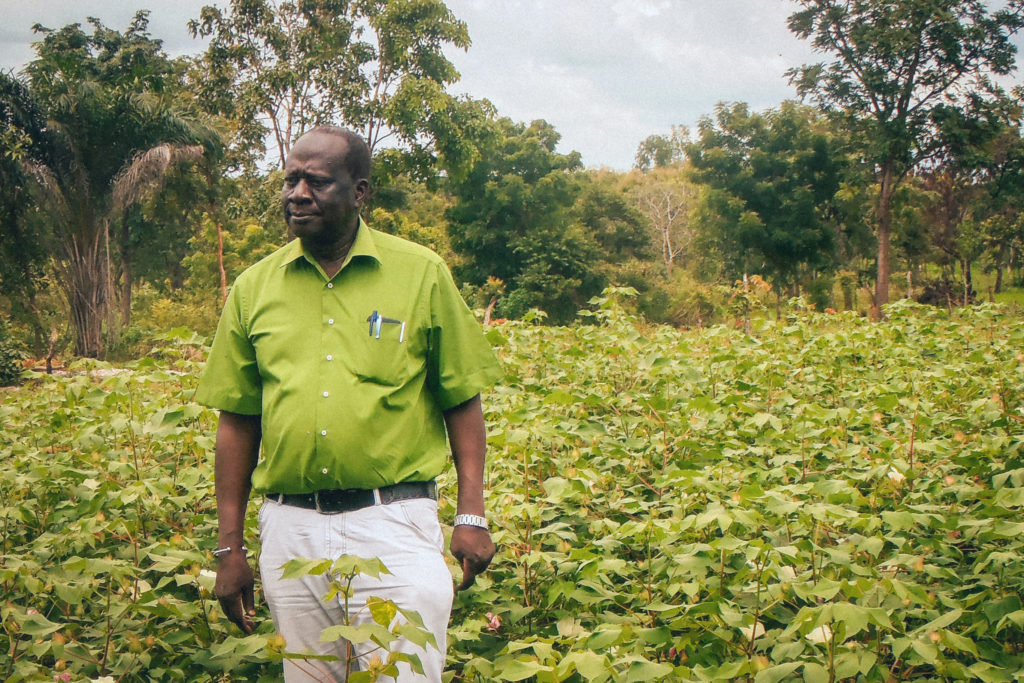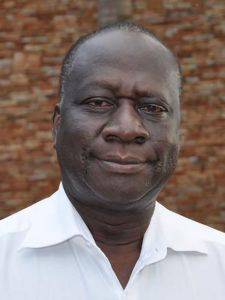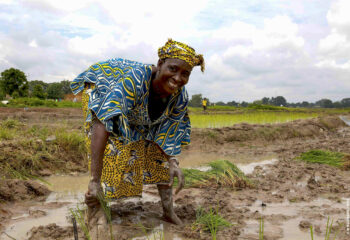
To date, it is estimated that over 10 million farmers have benefited from microdosing and warrantage in West Africa.
Dr. André Bationo, SAPEP chief of party, has been awarded the 2020 Africa Food Prize, which recognizes “outstanding individuals and institutions that are leading the effort to change the reality of farming in Africa from a struggle to survive to a business that thrives.”
Bationo is a veteran of IFDC, having served as Principal Soil Scientist and Leader of Soil Research in the drylands of West Africa from 1982 to 2000. It was in this role that Bationo and his team developed fertilizer microdosing technology and warrantage systems.
Microdosing
Microdosing involves applying small doses of fertilizers directly to a crop “hill” rather than broadcasting fertilizers, which is the traditional application method. This technology ensures plants use nutrients efficiently and reduces losses through leaching or runoff. Additionally, it lowers cost and amount of fertilizer use, mitigates fertilizer’s environmental impact in drought-prone areas, and promotes productivity of target crops, with a yield increase of 85-145%.
Warrantage
Realizing that it is not enough for farmers to simply grow more crops, Bationo has also promoted the warrantage system in West Africa. Warrantage is a social safety net mechanism aimed at tackling the problem of producers’ financial liquidity and access to credit. The system enables producers to access cash loans against the value of their stored farm produce at harvest, when the price is relatively low. The system enables farmers to have advance credit, store their grain, and sell four to five months later when prices improve, thus earning a better return on their investment. The loan enables farmers to address urgent household financial needs and participate in collective purchasing of farm inputs. With this credit, farmers also are able to carry out some income-generating activities during the off season.
To date, it is estimated that over 10 million farmers have benefited from microdosing and warrantage in West Africa.

Throughout his career, Bationo’s research has focused on developing technologies that increase agricultural productivity while conserving natural resources. His research has contributed immensely to understanding soil fertility issues in sub-Saharan Africa. Key themes addressed include nitrogen and phosphorus dynamics in Sahelian ecosystems, soil organic carbon dynamics, crop residue management, improvement of nutrient use efficiency and synergy between organic and inorganic plant nutrients, water management, use of phosphate rock, and integrated crop systems. Bationo has published 350 refereed journal articles, 10 books, and numerous book chapters.
Previous awards include the UNESCO-Equatorial Guinea International Prize for Research in the Life Sciences; Kwame Nkrumah Continental Award from African Head of States for outstanding achievements in science and technology; International Award from the International Fertilizer Association; Honorary Causa doctorate from the University of Uppsala, Sweden; and Highest Civilian Award from the Government of Niger for developing soil fertility restoration technologies.




